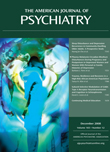Poets on Prozac: Mental Illness, Treatment, and the Creative Process
If this collection of essays, edited by psychiatrist/poet Richard Berlin, was published in the United Kingdom, Canada, or Australia, it might have been called “Poets in Therapy,” a more accurate, if less sexy and alliterative title. About more than pharmacotherapy, the book’s first-person testimonials from successful poets who found themselves in desperate straits cast light on the reservations many creative people have about getting help.
In the words of the poet J.D. Smith: “For a poet, seeking treatment for depression is to break with an implicit social contract. To the extent that the culture at large has a view of poets, beyond acknowledging their existence as a strange but seldom seen life form, such as a platypus or giant squid, that view is based on the Romantic myth of the poet as a distraught creature, preferably consumptive, who occasionally breaks forth in a song or a dirge. The poet in this view is morose so that others do not have to be, a pack mule for the collective burden of consciousness.”
When such reluctant individuals do seek professional help, the American health care system further complicates the matter with a scarcity of treatment resources, insurance company limitations and prejudices, and out-of-pocket payments that poorly-paid creative artists can ill afford. Ironically, the first essay in the book, by Welsh poet Gwyneth Lewis, expresses gratitude for the National Health Service that provided her with some 15 years of weekly psychotherapy. Such contrasts to the American system were rightly debated during the recent presidential election campaign.
Many books have been written about the so-called “confessional” poets, such as Robert Lowell, Sylvia Plath, and Anne Sexton, all of whom suffered bouts of florid mental illness and whose creative writing careers, and very lives, were extended by psychiatric treatment. There have also been first-person narratives of mental torment written by masters of prose, such as novelist William Styron’s wrenching account Darkness Visible .
The poets/patients who have provided Dr. Berlin with exquisitely revealing details of their illnesses have not achieved the mythic status of a Lowell or a Plath or the fame of a Styron. The nitty-gritty details of their struggle to keep writing despite a range of psychiatric symptoms that includes mood swings, debilitating anxiety, eating disorders, and postpartum depression will resonate with any creative person in need of relief yet simultaneously fearing the effects of becoming more stable or less exquisitely sensitive. In Gwyneth Lewis’s words, “Since I was a child, I’ve lacked an emotional epidermis. This is good for writing—it means I can sense a lot—but bad for one’s daily equilibrium.”
Several of the poets offer excerpts from their work, including poems written both in medicated and unmedicated states. The issue of how medication affects creative writing can never be fully resolved, though Lewis states, “Even if it were proven that antidepressants adversely affected my ability as a poet, I’d still take them. After being a zombie for months, being able to write at all is a miracle, and that participation in the creative discipline, rather than a more objective measure of excellence, is the bottom line for me.”
This book belongs on the shelves of all therapists who treat women and men who immerse themselves in creative writing or any other fine art. Dr. Berlin’s pithy introduction provides a useful summary of the relationship between creativity and emotional disorder. The 16 essays and the poetic excerpts that bolster them share the virtues of being heartfelt, accessible, and brief. They can be read by highly literate women and men, even those in the midst of an emotional maelstrom.
No less a psychiatrist than Freud wrote, “Everywhere I go I find that a poet has been there before me.” No less a poet than the great American Robert Lowell wrote, after yet another debilitating round of bipolar illness, “Everyone’s tired of my turmoil.”



